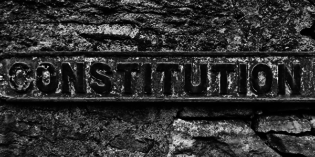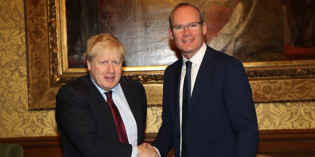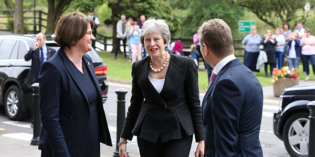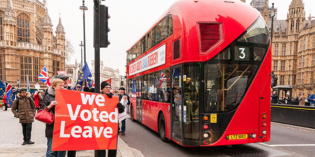EU referendum

The Great Brexit Crisis: we are in for an unprecedented shake up of the UK constitution, laws, conventions and politics
The UK seems to be rapidly heading for one of the most tangled and tumultuous political periods in modern history as Brexit nears its apogee, writes Colin Talbot. Whether you think we’re headed to Valhalla or Ragnarok, the constitution, law, conventions and politics are all set to be tested in ways rarely seen. In this blog, he presents a quick guide to some of the institutions that will be severely tested over the next days and weeks.

A strange irony: How the EU withdrawal process ended up saving the Human Rights Act
Even though it looks increasingly likely the Brexit deal will not survive its first hurdle in parliament, there is yet more evidence in its pages that Brexit has saved the Human Rights Act and secured Britain’s long term future as party to the European Convention on Human Rights (ECHR), writes Frederick Cowell. In the Political Declaration on the Framework of Future relations with the EU, the document accompanying the withdrawal agreement, under the heading ‘core values and rights there is a commitment to ‘respect the framework of the European Convention on Human Rights’. In the text of the withdrawal agreement itself – which would be a legally binding on the government – there are provisions in the Protocols on Northern Ireland, which seem to assume the UK remains a party to the ECHR.

The UK is heading towards a constitutional crisis over Brexit
As the clock runs down on Article 50, a political crisis is looking increasingly likely. However, Iain Begg argues that this could become a more damaging constitutional crisis if Parliament is unable to settle how Brexit proceeds.

Patriotism, pessimism and politicians: understanding the vote to Leave
Ben Worthy reflects on the numerous overlapping reasons for the Brexit vote, the parallels with previous elections, and why a second vote risks exacerbating the anti-elite sentiments that underpinned it.

Conservative Brexiteers are offering unserious answers to serious questions in Northern Ireland: the consequences for the Union are significant
Proposals from backbench Brexiteer MPs as to how to resolve the border question in Northern Ireland fail to address the problem of maintaining a common set of standards with Ireland post-Brexit. Sean Swan argues that, given public opinion in England, a customs border in the Irish Sea, with divergence between Great Britain and Northern Ireland, is a likely outcome.

Why Boris Johnson is wrong about the Irish border (again)
Former Foreign Secretary Boris Johnson has, once again, intervened in the Brexit debate about concerns over a hard border between Northern Ireland and the Republic of Ireland. Sean Swan explains how Johnson has misrepresented the problem, and why the border question is of such symbolic and physical importance.

The dismantling of the State since the 1980s: Brexit is the wrong diagnosis of a real crisis
Abby Innes writes that the vote to leave the EU and the administrative chaos around it pull into focus the crisis we should have been talking about before: the failures of homegrown neoliberal policies and their dire implications. She argues that while Brexit has been heralded by supporters as a solution to a number of problems, what it will actually do is to accelerate to the point of ‘completion’ the already failed experiments to reform the state.

The backstop is dividing Northern Ireland. We urgently need new talks
Brexit has become highly politicised in Northern Ireland. A damaging chasm is opening up between the two political blocs, and between the British and Irish governments, on the EU backstop. Mary C Murphy argues that a compromise formula is possible, but the lack of devolved government means new efforts – and new forums – will be needed to break the stalemate.




 Democratic Audit's core funding is provided by the Joseph Rowntree Charitable Trust. Additional funding is provided by the London School of Economics.
Democratic Audit's core funding is provided by the Joseph Rowntree Charitable Trust. Additional funding is provided by the London School of Economics.